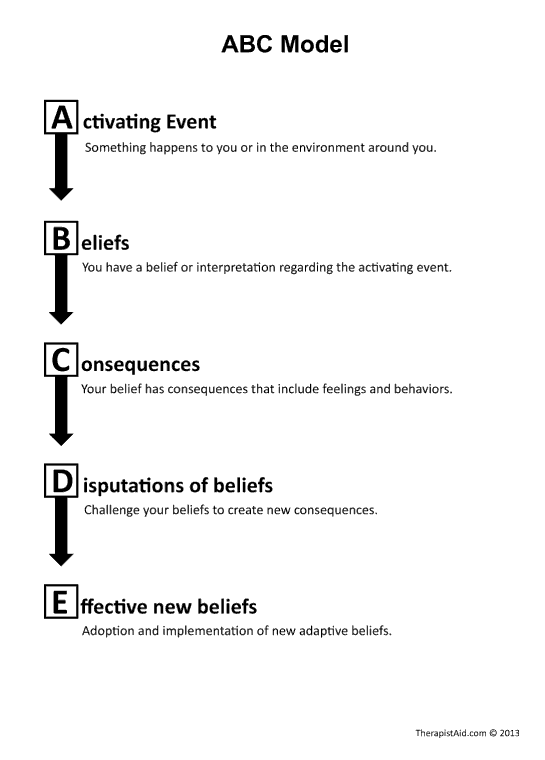REBT (Rational Emotive Behavior Therapy) is a form of cognitive-behavioral therapy developed by psychologist Albert Ellis. It focuses on helping individuals change their irrational beliefs and thought patterns that lead to emotional distress and unhealthy behaviors. REBT therapy worksheets are tools used in this therapy to help clients identify, challenge, and change their irrational beliefs.
These worksheets are designed to assist individuals in recognizing their negative thought patterns and replacing them with more rational and constructive beliefs. By completing these worksheets, clients can gain insight into their thinking processes and learn strategies to cope with challenging situations in a more rational and adaptive way.
REBT Therapy Worksheets
REBT therapy worksheets typically include exercises such as ABCDE analysis, where clients identify the Activating event, Beliefs, Consequences, Disputing irrational beliefs, and Evaluating the new beliefs. This exercise helps individuals understand the connection between their beliefs and emotional reactions, as well as challenge and replace irrational beliefs with more rational ones.
Other common REBT therapy worksheets focus on identifying cognitive distortions, exploring core beliefs, setting goals, and practicing coping skills. These worksheets are tailored to each individual’s specific needs and can be used in conjunction with therapy sessions to reinforce learning and promote lasting change.
By regularly completing REBT therapy worksheets, clients can develop greater self-awareness, emotional regulation, and problem-solving skills. They can learn to challenge their irrational beliefs, manage their emotions more effectively, and make healthier choices in response to challenging situations. Over time, these worksheets can empower individuals to take control of their thoughts and behaviors, leading to improved mental and emotional well-being.
In conclusion, REBT therapy worksheets are valuable tools in the treatment of emotional distress and maladaptive behaviors. By using these worksheets in conjunction with therapy sessions, individuals can gain insight into their irrational beliefs, challenge and replace them with more rational ones, and develop healthier coping strategies. Through consistent practice and commitment to change, clients can experience lasting improvements in their mental and emotional health.
